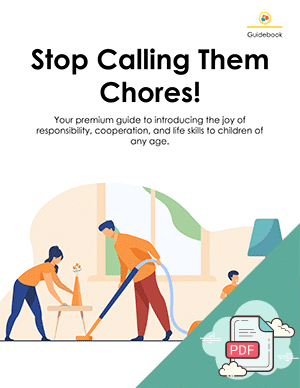As a parent, I am very thoughtful about the ways in which I engage my six-year-old, so she will have the life skills needed when she’s on her own. I’ll never forget when, during the first week of freshman year of college, my roommate admitted she didn’t know how to do her own laundry.
I was completely dumbfounded. Before I had left home, my mom had taken me to a laundry mat with coin-operated machines so I could practice on machines like I would have to use at school.
She didn’t teach me about wool shrinking in the wash. I didn’t own anything wool in Southern California, but when I went to college in the Midwest I learned about winter clothes! Still, that first week I was happy I knew how to wash stuff.
Planning Ahead
- Confidence to ask for help when confused. (“I’m so lost. Where am I?”)
- Knowledge of who to ask for help. (Gas stations … the old standby.)
- Financial literacy. (The number of credit cards offered to college kids is diabolical. The knowledge to refuse them is learned.)
- Research and recommendation ability. (I had to find a local dentist, preinternet.)
- Appointment making skills. (I had to make an appointment for the dentist.)
- How to document ongoing issues for presenting a complete picture to a person of authority. (Ongoing leaks the landlord assured me weren’t happening.)
- Knowledge of personal care. (I didn’t get sunburned out on the lawn those first few weeks of school because I had been putting on my own sunscreen since I was six.)
Even though so much more can now be done digitally than when I was a kid, that doesn’t mean my daughter shouldn’t know the processes of how life works.
If I do everything by appointment apps, she’ll never understand the life cycle of adulthood.
Activities You Can Start Now
Below are examples for you to work through with your four-to-eight-year-old child. They are largely transactional in nature, for greater understanding about the functional realities of life.
But the emotional impact of (a) your time, (b) your honesty, and (c) your thinking process establishes respect, trust, and confidence with your child that is incomparable and unbuyable.
Family Leadership Tips:
If you’ve never taken your child with you to do something before, then before having them try it independently, you need to start at the beginning with them. From that base knowledge, you build slowly. You don’t go at it with the articulated statement “OK, son, today we are going to learn about Life Lesson X.” Awkward!
These are conscious teaching moments on your part that will build upon themselves toward achieving the confidence and capabilities you want to see in your child as an adult.
Once you have this progressive teaching pattern in mind, you can apply it to everything in life appropriate to share with your child. You’ve only got a short window (about 18 years) to prepare your child for life (about 60–80 years after they leave you). Make it count!
Activity 1
Take your child to the grocery store! Even if you love at-home delivery, make the time to take your child.
Life Lessons Learned: sequential thinking, planning, personal health, family practices, financial responsibility, community engagement.

Progression:
- Have your child reach for the items on your list. Explain what the ingredient is and how you will use it. At the end of the outing, have them thank the cashier as you do.
- Have your child go through the fridge and pantry to see what they think is missing. (They won’t get everything, but they will notice if there’s no milk!) Write it on the list. Have them pull it at the grocery store. Have them help you load the conveyer belt. If it’s a small enough grocery run, use cash in order to let your child more clearly witness the transaction than a credit card purchase allows. Have them thank the cashier as you do.
- Have your child decide on a meal they would like during the week. Go through necessary ingredients with them and let them determine if it’s in the house or needs to be purchased. Have them compile the list of needs and pull items at the grocery store. Have them help you load the conveyer belt and offer the cash. Thank the cashier as your child now knows to do.
Activity 2
Have your child help with home maintenance. No, your five-year-old best not try and fix the garbage disposal. But there are appropriate ways to include them.
Life Lessons Learned: care for their living space, appreciation for the amount of work it takes to keep a space clean, environmental responsibility, critical thinking skills, navigation skills (ever been lost in Home Depot?), asking for the help of professionals (when needed).

Progression:
- Have your child help you with basic maintenance and cleaning around the house. Show them what supplies you use, where they are kept in the house, explain why you keep them out of reach of younger siblings, and then show them how to use the product.
At this age, they want to help. (My daughter loved cleaning the toilets for a time.) They won’t get it perfect. Explain what “clean” means to you and encourage them until they reach a reasonable level. Lots of praise helps here.
- Have your child help you with a more seasonal task, such as gardening, cleaning the gutters, or cleaning the lint vent from the dryer. In addition to weekly cleaning, some things need to be done once or twice a year. Take the opportunity to engage with your child about what needs to happen and why. Walk them through the process with you.
- Have your child help you fix something that’s broken. Again, no one should ever use a child’s small hands to reach into sharp or small places. The thought here is that your child should understand that when the dishwasher starts leaking (for example), you don’t just get a new one.
There are critical thinking skills involved for you both, and maybe your own learning curve to overcome! Let them see how you figure out the problem. Do you call a friend or family member? Do you search YouTube? Do you call a plumber? Set them up with the internal resources to not be afraid of dealing with an issue. As we know, things only get worse if we don’t deal.
There are many reasons to expect that your child would be ready to start working after college. A degree, though, only establishes that they studied a particular field for four years and therefore, presumably, have a greater understanding of said field than someone who did not.
Guidebook
Stop Calling Them Chores!
A premium guide to introducing the joy of responsibility, cooperation, and life skills for parents with children of any age.
No matter the age of your child now, you have the opportunity to teach your child in this progressive way, the life skills they will need to be successful.
Learning and practicing these essential life skills—long before they were actually needed—means that when the time comes that they really do need to go the dentist / call the landlord (etc.) they’ll be prepared.
Disclaimer: This post may contain affiliate links. As an Amazon Associate, we may receive a small commission for qualifying purchases you make using these links. There is no additional cost to you.
Useful Materials
What To Do Next
1. Read more in the blog:
The Family Wisdom Blog shares valuable ideas across diverse topics.
2. Explore the Printables Library:
Our printables library is filled with must-have activity ideas, checklists, guides, and workbooks.
3. Subscribe to Our Newsletter:
Sign up for our newsletter for parenting tips to help you create the family team you've always wanted.
Stefanie Small
Stefanie Small is Web Strategist, Content Producer, and Copywriter. From her home office in San Francisco, she nurtures entrepreneurs through their online materialization process, strategizing and producing all relevant content (video, photos, audio, website) necessary to present themselves with confidence and authority online. www.StefanieSmall.com
More posts by Stefanie >>






